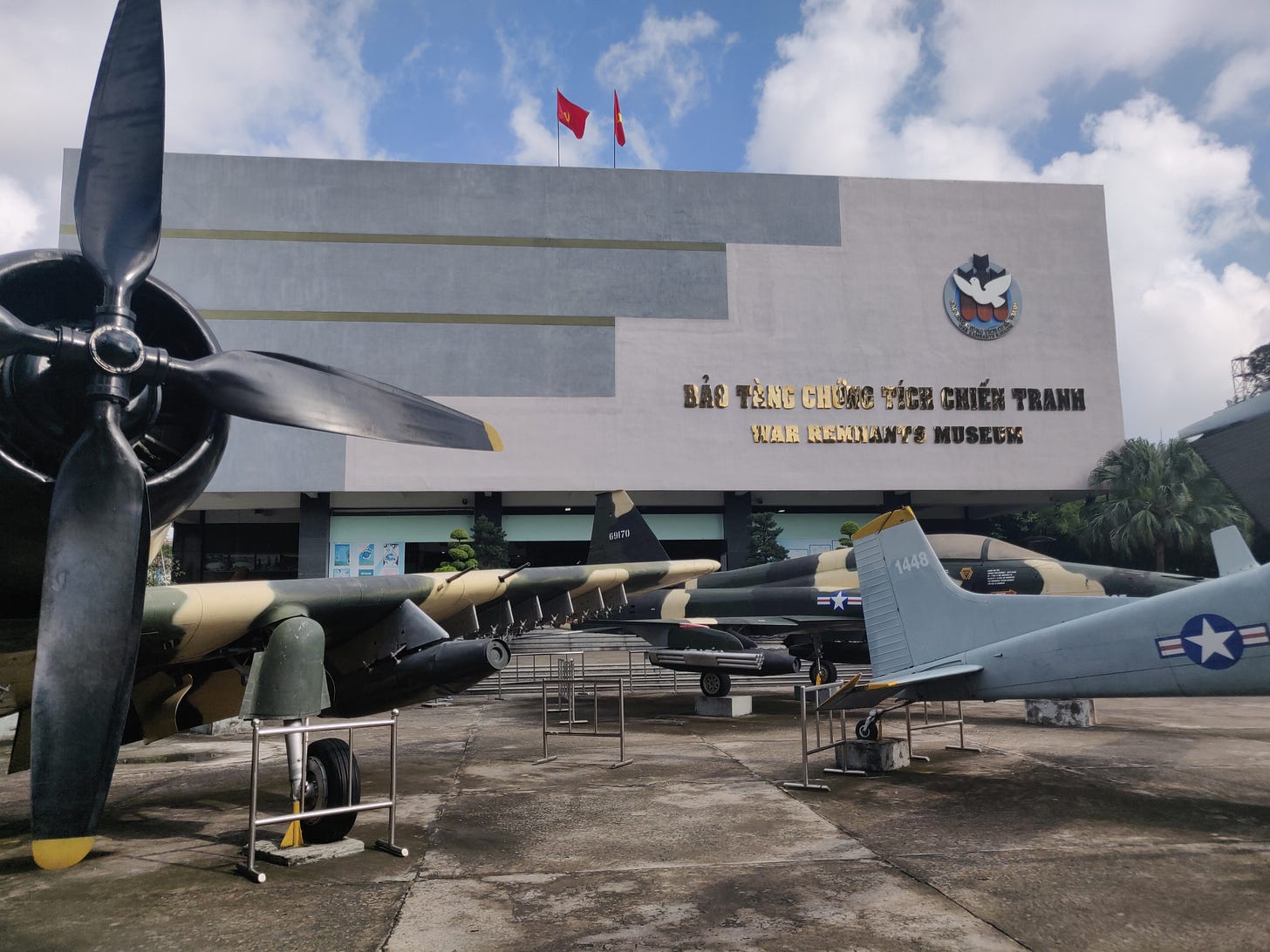Confronting the Cost of War: Reflections from the Vietnam War Museum
Ho Chi Minh, Vietnam War Museum
Today, I visited the Vietnam War Museum in Ho Chi Minh City, and I left utterly shocked and heartbroken by what I saw. The exhibits brought me face-to-face with the brutal reality of the Vietnam War—images of innocent civilians caught in the crossfire, children suffering from the effects of chemical weapons, and the widespread devastation that tore through an entire nation.
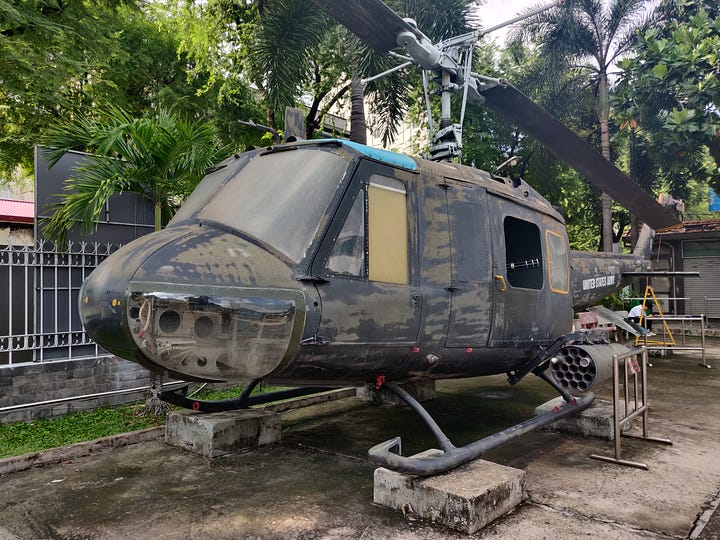
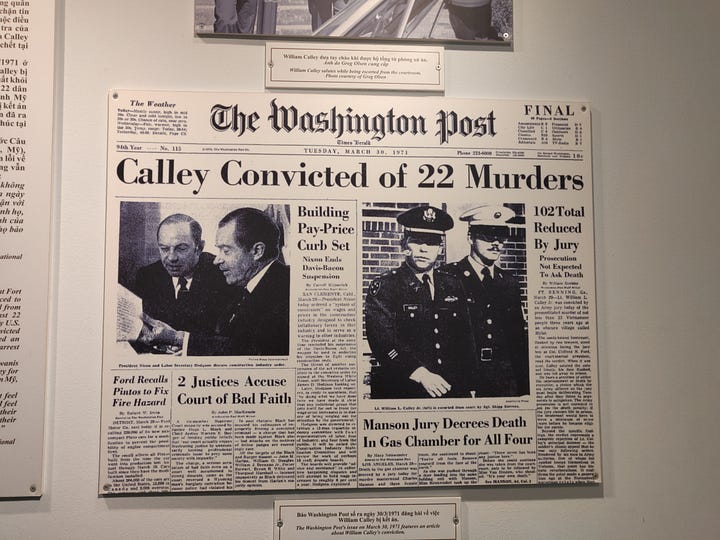
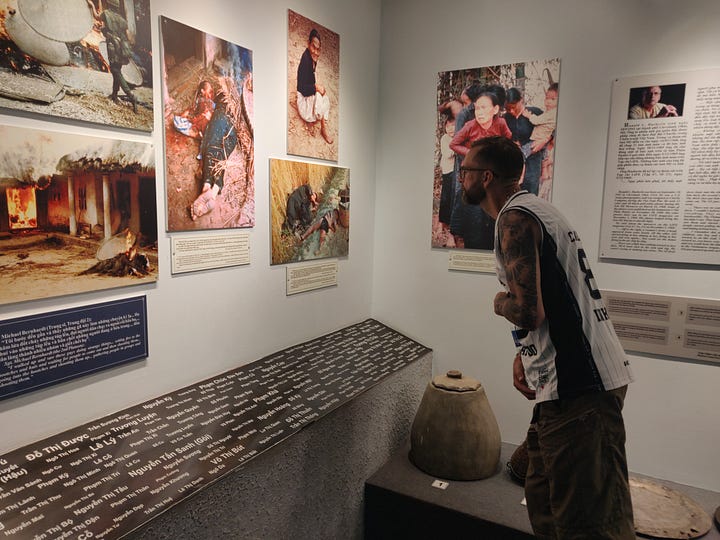
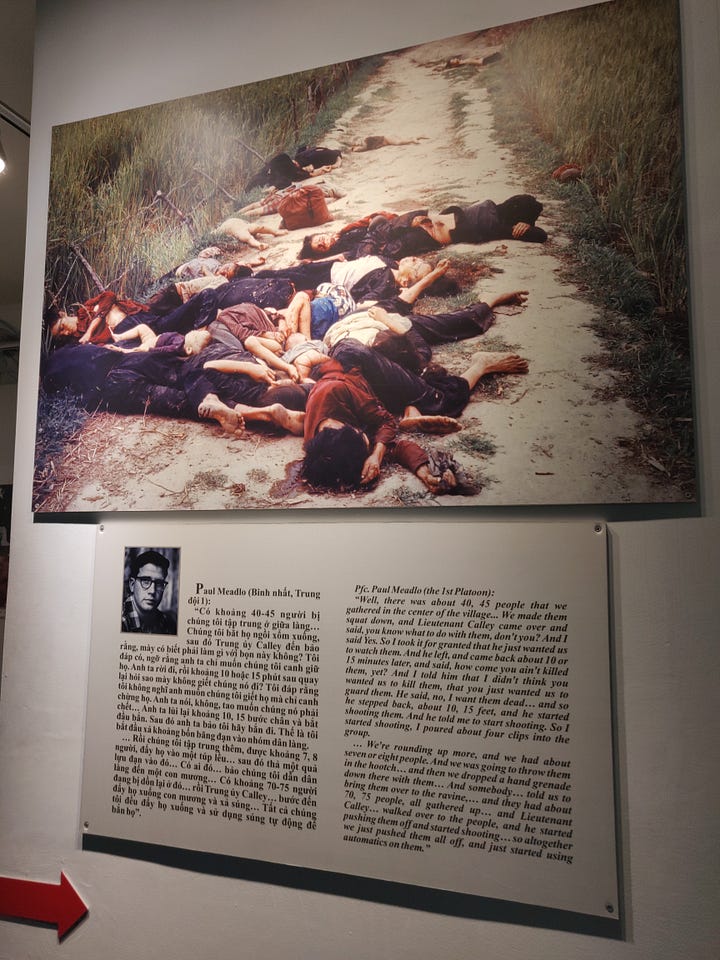
As I walked through the museum, I couldn't help but feel an overwhelming sense of anger and frustration. I thought about the people who created these weapons, the politicians who authorized their use, and the soldiers who were tasked with deploying them. Did they truly understand the human cost of their actions? Did they grasp the long-term consequences for the people of Vietnam? Or were they too removed from the devastation to see the full impact?
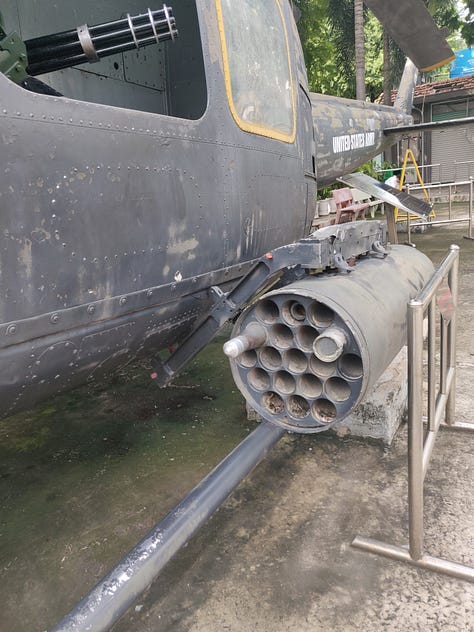
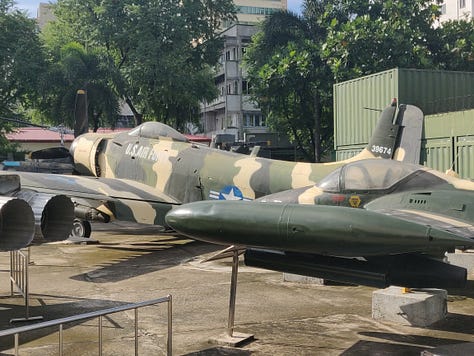
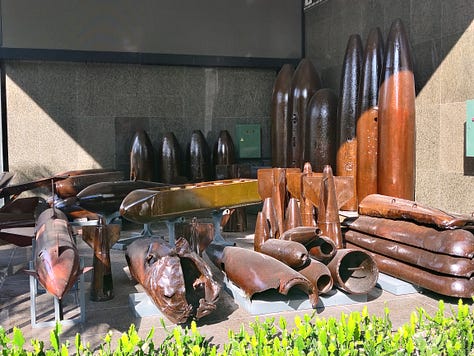
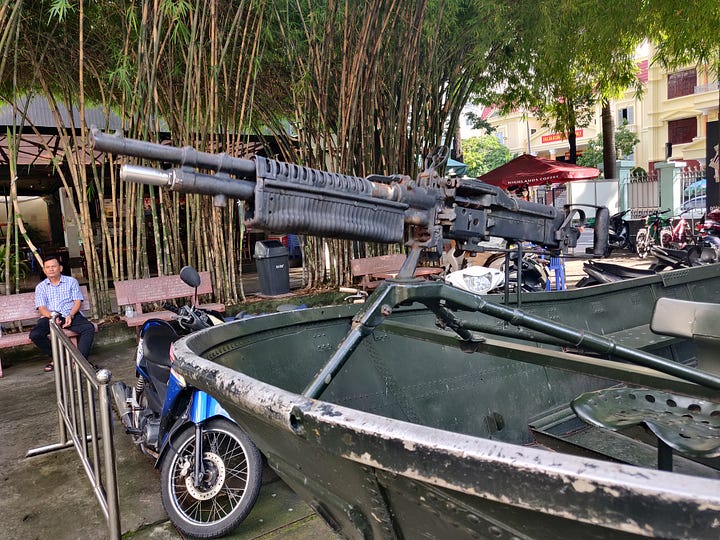
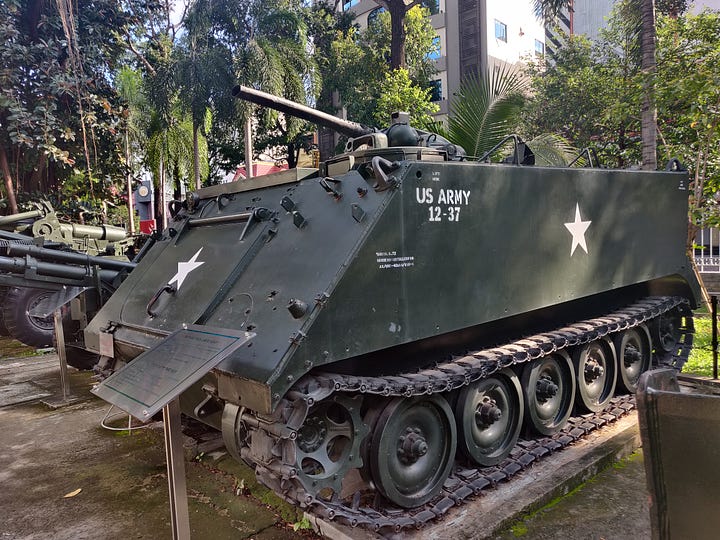
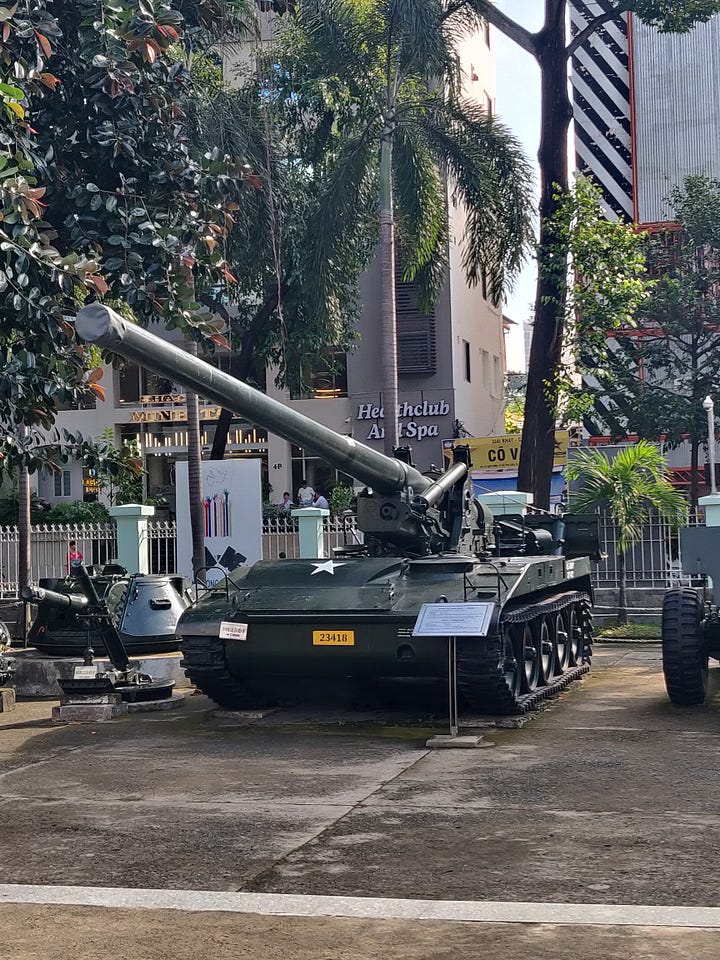
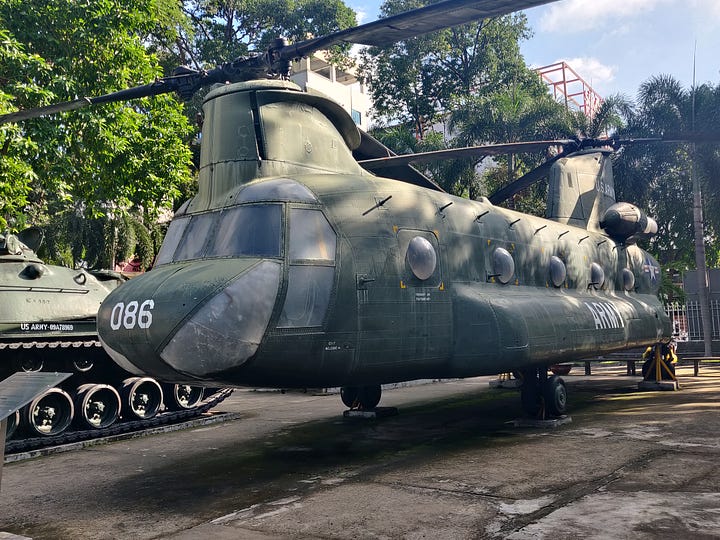
The United States employed high-tech weapons, flamethrowers, massive bombs, and chemical agents like Agent Orange, often with little regard for who they were killing. We unleashed this technology on a scale that was incomprehensible, yet we didn’t even know who our targets were. The result was the indiscriminate killing of countless women and children, civilians who had nothing to do with the conflict. The My Lai Massacre is just one horrific example of the atrocities that occurred, where innocent villagers were brutally murdered in an event that should never be forgotten.
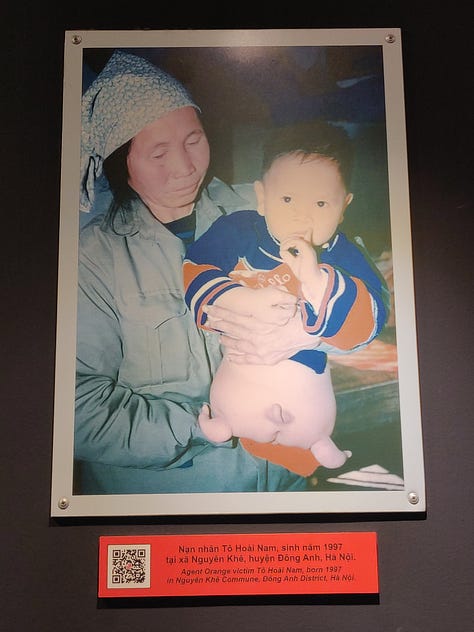
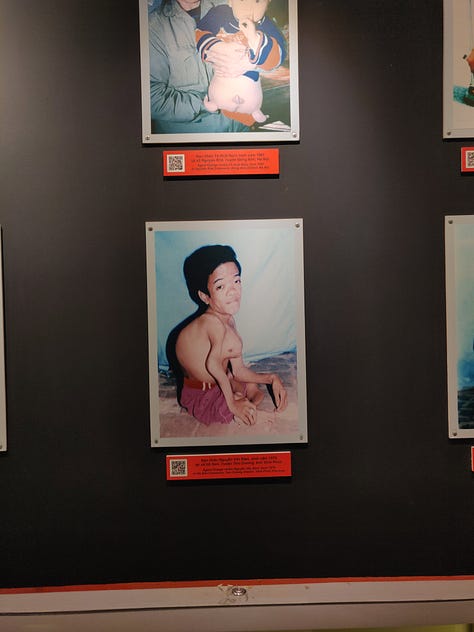
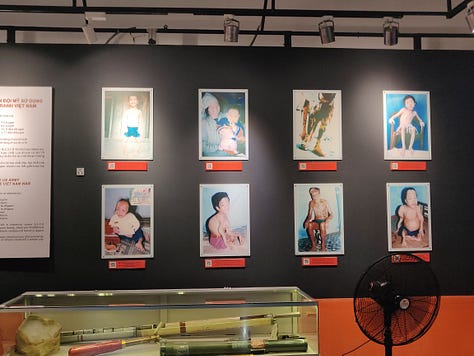
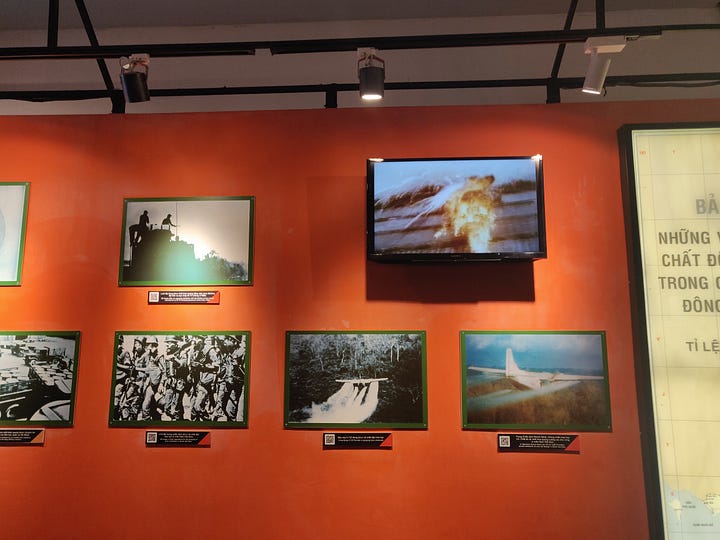
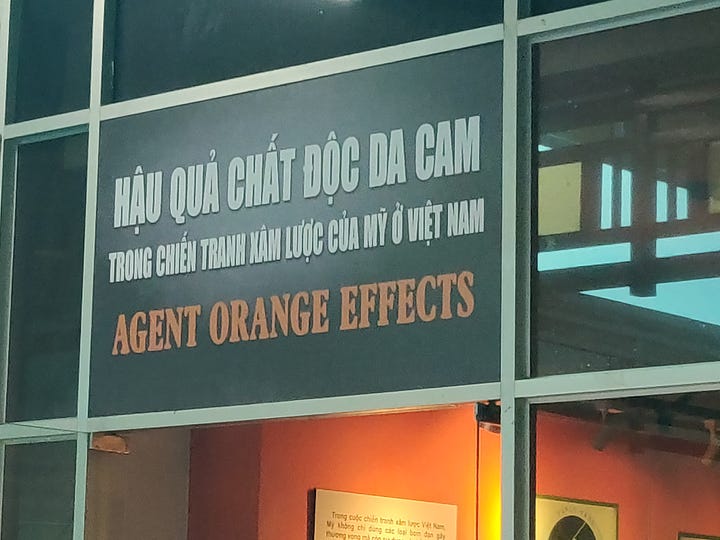
This experience has made me question the narratives we’ve been fed about war. Movies like Apocalypse Now (pls watch this short YouTube video and think of the civilians on the receiving end), which I once counted among my favorites, now feel hollow and distant from the reality I witnessed today. The romanticization of war in film and literature does a disservice to the truth, glossing over the immense suffering inflicted upon civilians and soldiers alike.
Sadly, the Vietnam War is not an isolated incident. In almost every war that the United States has been involved in, our actions have caused more harm than good despite our stated intentions of promoting democracy and protecting human rights. The devastation left behind by these military interventions—both abroad and at home—cannot be ignored.
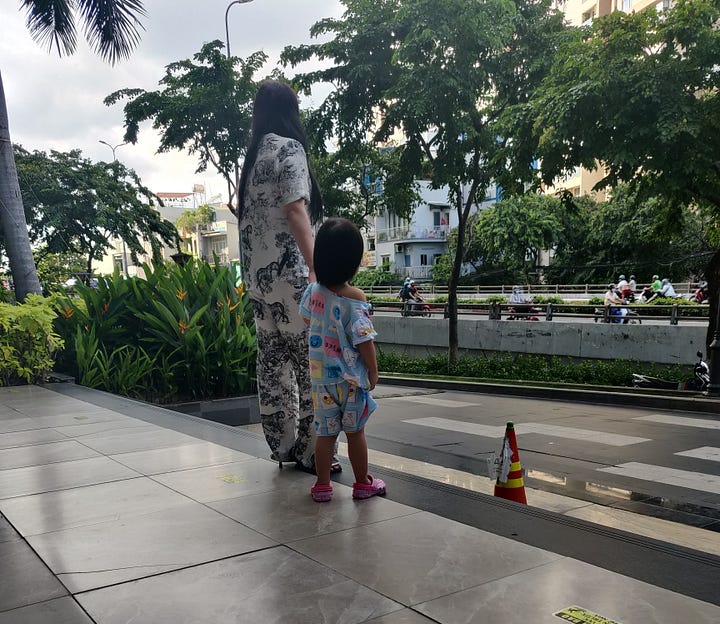
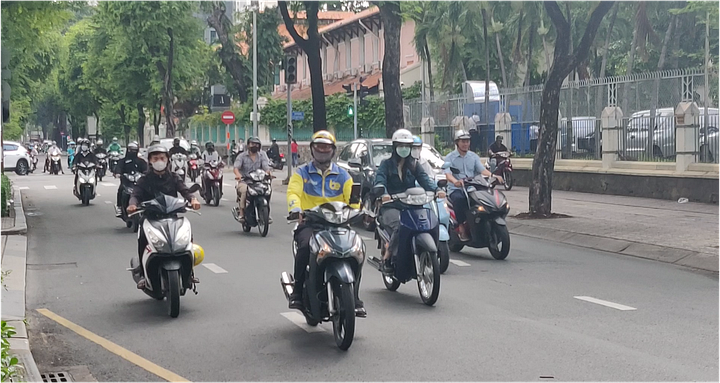
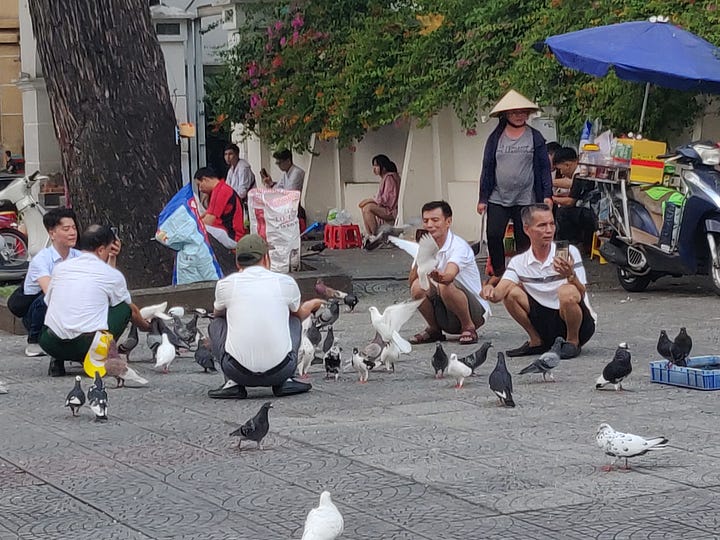
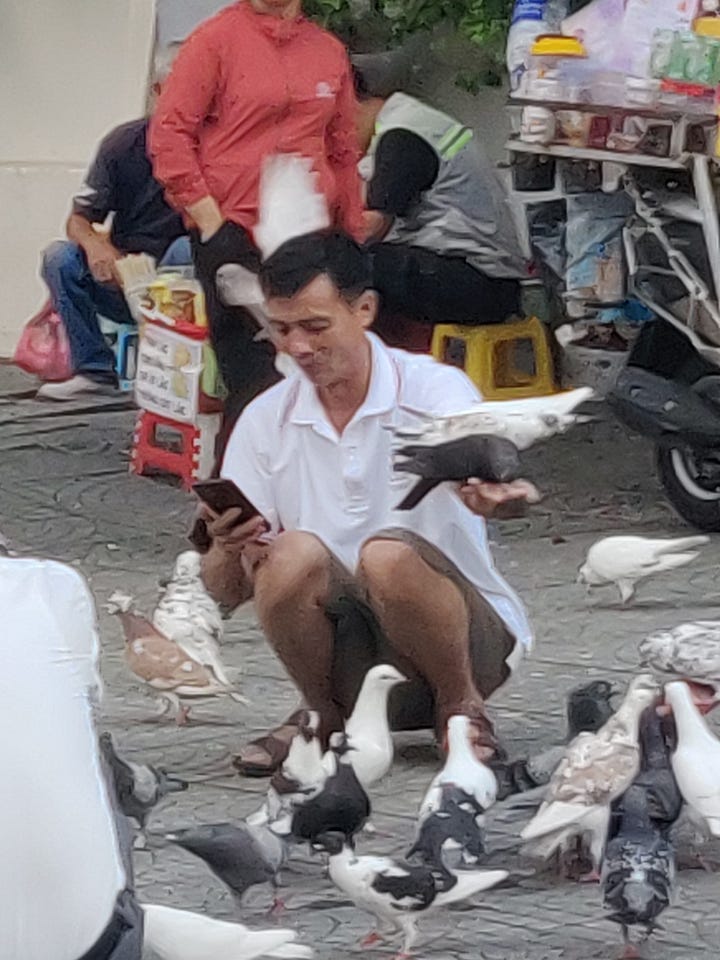
Now that I’m here in Ho Chi Minh City, meeting Vietnamese people and experiencing their culture, I’m even more devastated by everything I’ve seen. There’s a palpable sense of love and connection among the people here, a warmth that is evident in the way they interact with one another. One thing that has struck me in particular is the number of couples I see walking down the street hand in hand, talking and laughing together. This simple, beautiful display of affection contrasts so starkly with the images of destruction and loss that I saw in the museum. It’s a reminder of what was lost and what could have been if not for the horrors of war.
As I reflect on my time at the museum, I’m left with a heavy heart and a lingering question: How can we prevent such suffering in the future? How can we move towards more peaceful and constructive ways of resolving conflicts, ways that do not rely on the destruction of lives and communities?
I also find myself thinking about the veterans who continue to struggle with the aftermath of war—those who came back physically unscathed but mentally scarred. The PTSD and other mental health issues that many veterans face are not just personal struggles; they are symptoms of the broader, more profound trauma inflicted by war. These men and women were often the ones on the front lines, witnessing and participating in acts that haunt them to this day.
As I left the Vietnam War Museum, I felt a profound sense of responsibility weighing heavily on my shoulders. The magnitude of human lives lost during the Vietnam War—approximately 3.5 to 5 million people across Vietnam, Cambodia, and Laos—serves as a somber reminder of the devastating impact of military intervention. While the loss of 58,000 U.S. soldiers is tragic in its own right, it pales in comparison to the immense suffering endured by the people of Southeast Asia. This political so-called 'War for Democracy' stands as a haunting example of the human cost of pursuing geopolitical goals through violence and DOES NOT MAKE SENSE. As we look toward the future, it is our duty to acknowledge the destructive legacy of war and work tirelessly toward a world where peace and compassion take precedence over conflict and destruction.
If interested, please comment and subscribe to my Substack. Thanks, Jon
Acknowledgment: I would like to acknowledge using Claude 3.5 Sonnet and Opus, Gemini, ChatGPT 4 and 4o, and Pi for content creation and research, as well as Grammarly for editing and grammar.


